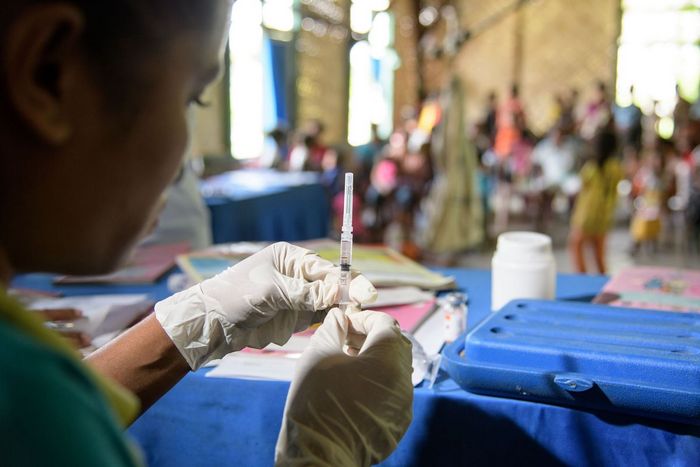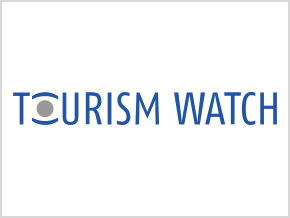Currently around 10% of the world's population is fully vaccinated - this corresponds to Germany's vaccination quota in March 2021. However, while mainly vulnerable groups received protection in Germany in March, it is not the most vulnerable groups that are globally vaccinated today, but the economically strongest groups that are already immunized. Ten countries account for 75% of all vaccination doses. The poorest countries have received less than 0.5% of the vaccines to date, and in some countries not a single health professional is yet protected. The approximately 2.6 billion vaccine doses that were distributed to date would have been sufficient to vaccinate all medical staff and all elderly people globally.
Vaccination priorities for tourism
More and more countries that are economically dependent on tourism have decided to give priority to employees in the tourism sector - almost all Caribbean islands, Turkey and countries in Asia. Most of them have at least provided their medical staff with vaccines beforehand. Not so in Egypt, for example: Despite a countrywide vaccination rate of less than one percent, tourism staff is already getting immunized there.
Advantages for resort tourism
Where there are vaccination priorities for the tourism sector, a formal employment relationship is often a prerequisite for vaccination. Only persons with an employment contract in a restaurant or a hotel or those who are officially registered as travel guides, receive vaccination. What is supposed to prevent abuse excludes all those who work in the informal tourism economy - around 50% worldwide. When the vaccination rate is high in the hotels but not outside, travelers worry about leaving the hotel. The large resorts with their all-inclusive models have a clear advantage once destinations re-open.
Vaccination tourism from South to North
Hotel chains, such as the Indian Oyo Group, show the vaccination quota of their staff in booking-apps. This increases the pressure on job applicants in a sector with many short-term contracts, who are now trying with all means to get one of the scarce vaccinations. It is no surprise that people in countries with poor vaccine availability invest a lot to become immune to the virus. The plane tickets from Peru to the USA for example cost about three times as much today as they did before the COVID-19-pandemic. The reason for this is the possibility to get a vaccination in the USA without living there permanently. New York City has even opened mobile vaccination centers at major tourism attractions as part of their reopening strategy. An opportunity that not only affluent Latin Americans take, but also people from Asia and Europe.
High vaccination rate as a competitive advantage for tourism destinations
Countries with high vaccination rates are attractive to travelers. Many small island states that are dependent on tourism are therefore trying to get themselves back on the global tourism map. Four Caribbean countries are among the Top10 countries with the highest vaccination rates. Through geopolitical alliances - especially with China but also the USA – they were able to secure vaccines. In this first tourist season with corona vaccines, these destinations that rely on the old, non-sustainable sun-sand-sea tourism model, are gaining competitive advantages.
Africa left behind in the vaccination race
So far, less than 1% of Africans received a vaccination. In 2020 it looked as if many African countries would get through the corona crisis relatively smooth in regard to the number of infections. Some tour operators, specialized on African destinations were even hoping that the continent could open up to tourism again faster than other regions of the world and thus permanently improve its weak position in the international travel market. Now, with the more aggressive virus variants, however, the number of infections and deaths is increasing rapidly.
How deceptive the vaccination security is, however, shows the East-African Island state of Seychelles, which ranks second in the world in terms of vaccination rates. Thousands of holidaymakers from Germany already traveled there over Easter and Whitsun. Despite a vaccination rate of 68% of the population (June 18, 21), the 7-day incidence has climbed back to over 200. The vaccines available there do not seem to provide full protection against infection and the new virus variants are spreading very quickly within parts of the population that are still unprotected.
Summer 2021 – caution still necessary
In summer of 2021 it is not enough to trust only on the own vaccination status and to expect the freedom on site that many still remember from the pre-COVID times. Caution will have to travel everywhere in 2021 - especially when visiting countries with a low vaccination rate, tests, and phases of self-isolation before and after the trip are necessary to limit the incidence of infection. As dramatic as it sounds: a health crisis will cost the countries of the Global South more than to abstain from international tourism for some more months.
COVID-19 is only over when it is over everywhere
The World Health Organization predicts that at the current speed of vaccination, it will take until 2023/24 before all people worldwide are protected against the virus. No country active in tourism is able to wait that long. The quickest way out of the COVID-tourism crisis is therefore the availability of sufficient doses of vaccines worldwide. This is the only way to avoid permanent restrictions and excessive demands on the health systems. Without the development and expansion of vaccination capacities in the Global South through the temporary suspension of patents and intellectual property rights, not only global justice will fall apart; the corona pandemic with all its dramatic effects will be unnecessarily prolonged. It is only over when it is over everywhere - this is especially true in an international sector such as tourism.
Mareike Haase is policy advisor for global health policy. Antje Monshausen is head of Tourism Watch und policy advisor for tourism and development. Both are working in the policy department of Brot für die Welt, the protestant development service in Germany.



